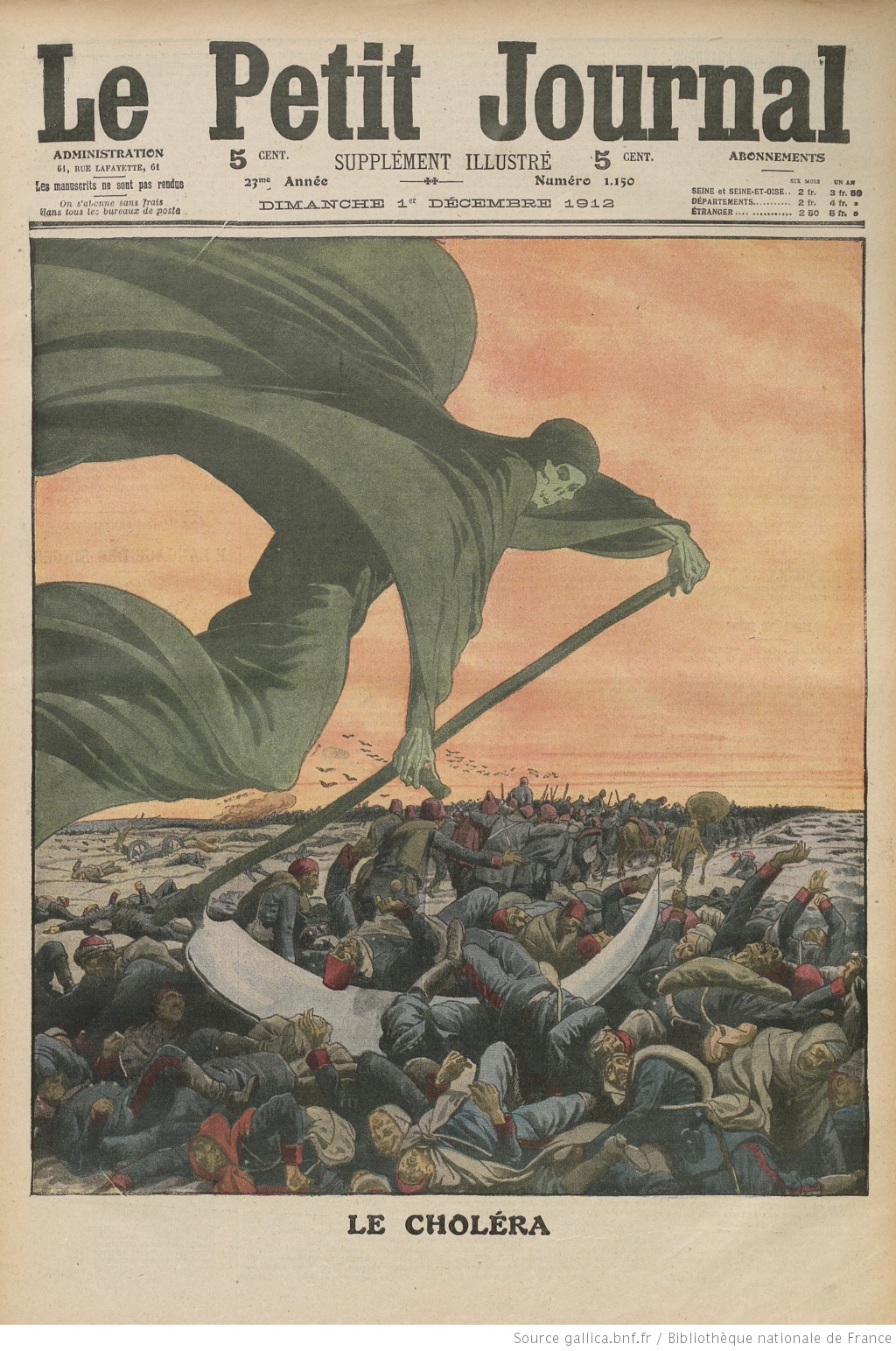Katerina Gardikas, associate professor in Modern Greek History, received her degree from the Faculty of History and Archaeology of the University of Athens and her PhD in Modern Greek History from King’s College, University of London. She worked as a researcher at the Centre for Modern Greek Research of the National Hellenic Research Foundation and taught at the Democritus University of Thrace and the Aristotle University of Thessaloniki. She taught at the University of Athens since 2001 and retired in 2016. Her research interests include the social history of health, spatial history and the history of state building. Her recent book, Landscapes of disease: malaria in modern Greece, was published by Central European University Press in 2018. She is now moving on to her next project on the history of midwifery. Greek News Agenda* had the opportunity to interview Katerina Gardikas on the social history of malaria, its management and eradication in modern Greece, as well as the impact of pandemics on regional and global history.
Your monograph Landscapes of Disease: Malaria in Modern Greece provides an insightful account of the different ways in which malaria interacted with the social realities of modern Greece, which you describe as having once been the most malarious country in Europe. Can you elaborate on the great variety of human responses throughout this period, as well as their interplay with environmental factors and the disease itself?
Greece suffered from malaria more than any other country in Europe; furthermore, it had a greater prevalence of its lethal form, falciparum malaria. Like in Subsaharan Africa today, children under the age of five were particularly vulnerable and died in great numbers. Although malaria was primarily encountered in the countryside, cities also experienced their share of the disease. Draining swamps both to relieve the peasantry from fevers and to reclaim land for agriculture was an ancient practice of proven, yet limited consequence. For instance, Muslim landowners in the Ottoman period would see that their estates were drained from floodwater. In fact, until quinine became available to the Greeks in the nineteenth century, draining was the only effective means of malaria control. The authorities of the Greek state, however, saw drainage primarily as a means of clearing land for agriculture. Ecological responses to malaria besides draining, such as spraying water surfaces with whatever chemicals were recommended by sanitary engineers, became a practice after malaria transmission was associated with the Anopheles mosquito, i.e. after 1897, in effect in the twentieth century, but were a highly costly measure that was practiced selectively. The vast majority of the Greeks relied on their quinine, which became a very popular means of protection and treatment, largely considered as a citizen’s right. Its widespread use often made it the subject of extensive adulteration.
As far as the effect of environmental factors on the spread of malaria is concerned, this is an issue that lies at the centre of my recent book. Environmental factors are directly related to the causes that affect the increase and decrease of mosquito populations, as demonstrated by British epidemiologist George Macdonald in the late 1950s. These factors varied greatly throughout Greece on account of the fragmented nature of the country’s geography. Owing to the particular ecological features, different areas were suitable for specific species of Anopheles that were capable of transmitting malaria in all its forms that had been endemic in Greece for millennia, namely vivax, quartan and falciparum malaria. Moreover, malaria was prevalent, not only in the plains and swamps; mountainous areas and islands were by no means free from the disease.
The fragmented nature of the Greek lands produces an extremely variable rainfall regime, a feature that resulted in the unpredictable behaviour of the disease within a year and from one year to the next. As a result, immunity to malaria was not easy to attain except in the most malarious marshlands, where the population suffered continuous and multiple infections. This situation of erratic protection from malaria greatly affected the disease experience of the Greeks. Nonetheless, around 1900, a period when malaria prevalence in Greece was at its peak, one in every three or four Greeks contracted malaria each year.
It was virtually impossible to escape its grip; the peasant was exposed to it in his every daily activity in the field and in the pasture lands. So was the refugee in the camp, the settler in his new town, plane or rail tracks, the merchant in his travels and the soldier on the front or in the barracks. Indeed, the first malaria statistics were compiled by military doctors in the 1880s.
To what degree did Greek scientific personnel participate in the specialized international community that was formed since the 19th century and helped shape the contours of antimalarial struggle?
Most foreign-trained Greek doctors had studied at Italian, French or German medical schools and retained their connections to their respective scientific communities after their return to medical practice in Greece. Furthermore, the first Greek governments were very serious about training medical personnel locally; thus, the first medical school was created in 1835, two years before the establishment of the University of Athens. Medical innovation, however, still entered the country through European medicine, albeit without much delay, particularly in fields such as malariology, which was of prime interest to Greek doctors and society owing to its widespread prevalence. Indeed, when Ronald Ross, the British doctor who had established the connection between malaria and the Anopheles mosquito in the transmission mechanism of malaria, toured the country in 1906 at the invitation of the British Copais Company, he was accompanied by Ioannis Kardamatis, the country’s leading malariologist.
Another source of knowledge transfer in the same field was Italian malariology. Italy, which, like Greece, suffered a severe malaria burden, but, unlike the Greek case, had a long-standing tradition in medicine and also had imperialist aspirations, was a leader in the field. The Greek Society for the Control of Malaria was created in 1905 and modelled on its Italian counterpart. Similarly, in the early twentieth century, different methods of malaria control advanced in Italy became the subject of debate among Greek malariologists. Therefore, Greek physicians became eclectic in their sources of scientific knowledge. By that time, the influence of both Italy and Britain tended to replace that of France in this particular field.
Your monograph retraces different methods in the medical and social management of the disease. How did we finally come to eradicate malaria in Greece and what was the contribution of international cooperation in these endeavors?
Drainage as a means of fever control had been practiced since antiquity. In the early days of Greek statehood, however, drainage was perceived more as a means of reclaiming land for the benefit of agriculture. In fact, quite often large drainage and land reclamation schemes, such as the drainage of lake Copais, left the drained areas with an equally serious malaria problem as before. Furthermore, the widespread planting of eucalyptus trees, a species native to Australia, in places of high human concentration as a “natural” method of malaria control, may be dated to the turn of the century, although it had begun earlier.
At various stages of the country’s state-building process, the contribution of foreign aid and influence was critical. Thus, the initial state sanitary institutions of the 1830s, the ones that first tackled its health problems, were set up by the Bavarian regents and the Greek, foreign-trained physicians who manned these institutions. They were the ones who explored the prevalent diseases and uncovered the widespread nature of malaria. Subsequently, failure to adequately fund sanitary institutions left the health situation of the country, particularly that of infectious diseases and malaria, primarily, in an extremely critical state that was further exacerbated by wars and the frequent influx of refugees. The few responses to this situation originated from the mobilisation of civil society, mostly wealthy Greeks within the country and abroad.
When, however, Greece received more than one million refugees from the Caucasus, Asia Minor and the Pontus in the aftermath of the First World War and the country’s defeat in 1922, the crisis became unmanageable. As, indeed, malaria thrives in such situation, international bodies stepped in to assist also on the malaria front. The most serious impact, however, was that of the League of Nations Health Organisation and the Rockefeller Foundation in the 1930s. The latter, in particular, set up experimental stations throughout the country, studied the disease, inaugurated malaria control modern measures and offered training to young Greek doctors. These interventions may not have solved the country’s malaria problem at the time, but they created the groundwork for the future and paid dividend after World War II.
Malaria control through ecological management was expensive. For instance, Paris Green, a chemical compound that was developed in the mid 1920s by Rockefeller Foundation scientists, needed to be sprayed on water surfaces every two weeks. Therefore, the labour cost made its widespread application a challenge for sanitary authorities. Eventually, it was the use of DDT that was introduced to Greece by the sanitary engineers of UNRRA in 1945, after the end of the German occupation, that provided a cheap and effective means to control the Anopheles. Indeed, in the aftermath of the Second World War, UNRRA’s sanitary section, which was largely staffed by Rockefeller Foundation physicians and engineers, inaugurated a vigorous DDT spraying programme. The spraying of DDT, particularly aerial spraying, helped reduce malaria prevalence to 10% over its first year of application and became immensely popular, despite its high toxicity. The disease was finally eradicated in the mid 1970s after a methodical and sustained strategy of control and surveillance, under the guidance of the World Health Organisation, thanks partly to foreign aid but also thanks to the general prosperity, which Greece was able to achieve in the 1950s and 1960s.
On a wider note, there is an ongoing historiographical debate as to the importance of epidemics in world history. What is your stance on this topic?
My own approach has been very much influenced by William McNeill’s Plagues and Peoples and his concept of disease pool. This concept helps us analyse and understand the connections between infectious diseases on the one hand and communications spheres on the other. In this sense, one may look at the spread of new diseases along the same routes as those traveled by trade, armies, ideas, large and small species. Interestingly, a recent study of the spread of the plague in fourteenth-century Europe suggests that the spread is traceable along the ports on the navigable rivers and canals, that is along the maritime and river trading routes.
After their first encounter with a pathogen and the lethal epidemics it produces, societies go on to build up their immune responses through the mechanisms of natural selection. Thereafter, the new disease gradually becomes less lethal killing ever fewer people and enters the disease pool within the broad geographical range defined by the communications regime of its time. Therefore, as important as epidemics are in world history, they should be historicised in relation to other defining features of entire civilisations. Consequently, the current crisis cannot be understood independently from the broader economic and environmental realities that plague our world today (pardon the pun). The immediate effects of epidemics may be important in significant ways, for instance the demographic depletion of Europe owing to the Black Death impacted subsequent labour relationships; the establishment of quarantine was effective in controlling the spread of epidemics before the introduction of germ theory; the control of the cholera outbreak contributed to the victory of the Greek army over the Bulgarians in 1913; the instances are countless, not to mention the impact of pathogens affecting other species, for instance the impact of the potato blight on the history of Ireland. However, today, as the survival prospect of humanity reaches a critical balance point, one should not lose sight of the role of pathogens in the broader patterns of historical change.

What would be a historian’s analytical and comparative perspective on the global Covid19 pandemic we are currently going through?
This is the first time in our lifetime that we witness the effective spread of a new and dangerous disease among our globalised society. Clearly, this uniqueness offers an historian an insight into what societies must have experience upon their first encounter with the virulent unknown. Influenza in its various strains is a virus with which humanity has become familiar, particularly after the 1918 pandemic; AIDS has spread more gradually and other dangerous new epidemics, such as ebola, have so far been contained before reaching the West. For humans, Covid19 is totally new. Some have termed this as the first modern pandemic, and, although this is not exactly true, it certainly has important unique features. What I believe is markedly different from earlier such occasions is the speed of its spread along with the speed and universal nature of the response of humanity. The international community was politically unprepared for the pandemic, despite the fact that the warnings from scientific experts had been issued clearly for several years; there had even been scientific centres dedicated to the study of possible suspect pathogens. Yet, the spread of SARS-CoV-2 in the northern hemisphere occurred before the scientific community had time to fully understand how the virus functions. Global lack of preparedness, in turn, brought on urgent and abrupt socio-economic government responses, such as lockdowns, with secondary socio-economic consequences of yet unknown severity and hardship.
This is clearly a failure of the political institutions to anticipate and mount an effective defense in advance. Scientific networks and international organisations, however, are currently performing with the speed of the digital age, and to a large degree (with powerful and ominous exceptions), with a sense of community.
Notwithstanding the broader picture, on a micro-historical level, it is interesting to observe the way the disease is experienced by individual social and cultural groups of people, by particular age groups; or the ways we perceive, reward or condemn demonstrations of solidarity or selfishness and antagonism.
On a broader level, we are faced with pending questions for the future: what institutions will the pandemic leave behind; how will it affect the ideas and institutions of global governance; how will societies, states and institutions deal with the widening inequality gap that will result from the pandemic; and, most importantly, will the pandemic make us any wiser with regard to our own lethal ecological impact. Interestingly, the forerunner of the World Health Organisation, the Health Organisation of the League of Nations emerged out of the Epidemics Commission that the League had set up to control the epidemics outbreaks, primarily of typhus, that the large waves of displaced populations triggered throughout East and Central Europe in the aftermath of the First World War. On the subject of internationalist ideas and global governance, particularly on the way conflicting interests affect the shaping of international institutions Mark Mazower’s, Governing the World is an important work worth reading in these circumstances.
*Interview by Dimitris Gkintidis.
TAGS: ENVIRONMENT | HEALTH | HISTORY | INNOVATION | INTERNATIONAL RELATIONS | RESEARCH | SCIENCE | SCIENCE & TECHNOLOGY | SOCIAL POLICY














